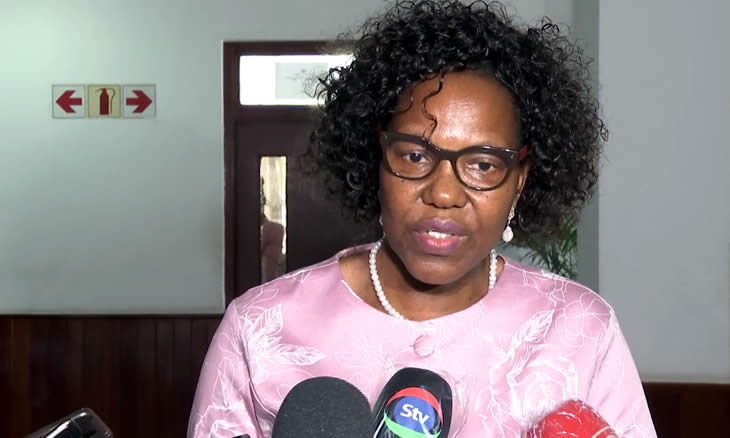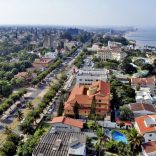Investment accounts for less than 20% of Mozambique's 2025 budget expenditure
Mozambique: Minister suggests wage freeze for pubic sector – AIM report

Photo: O País
There might be no wage rise at all for Mozambican public sector workers this year, warned the Minister of State Administration, Ana Comoana, on Monday.
Speaking at a hearing before the Commission on Public Administration of the Mozambican parliament, the Assembly of the Republic, Comoana blamed this proposed attack on living standards on the Covid-19 pandemic.
She claimed that wage rises in any particular country are based on the economic performance of that country. If the economic performance does not justify it, then a wage rise might not happen “even if there is good will”.
And if the money was found for a rise, it might not be as much as desirable, she added. “All this will be the subject of analysis, and of study” in light of the impact of the pandemic, said Comoana.
“We were all taken by surprise by the pandemic”, she claimed. “Several sectors are not producing, so there will not be enough revenue. So any wage rise must be studied carefully, to see whether or not there can be a rise”.
Comoana’s suggestion that ordinary workers pay for the crisis was undermined by the Assembly of the Republic, which last week voted itself an enormous increase in its budget. The Assembly’s operational budget (i.e. excluding capital expenditure) for 2020 almost doubled, to reach 2.8 billion meticais (about 42 million US dollars, at current exchange rates).
Commentators found particularly outrageous the money spent on the “reintegation” into society of parliamentary deputies. This is money given to deputies of the outgoing legislature – even if they were re-elected in last October’s general election. This handout is around four million meticais per deputy.
So regardless of Covid-19, the deputies will receive their reintegration allowance, but ordinary workers may be deprived of the annual pay rise they are expecting.
Comoana was speaking while the Labour Consultative Commission (CCT), the tripartite negotiating forum between the government, the trade unions and the employers’ associations, is discussing the 2020 increase in the minimum wage.
When the negotiations began, on 18 March, Antonio Munguambe, the General Secretary of the main trade union federation, the OTM, said “We, the workers, have not come here looking for high wages, but for wages that can assist in the purchasing power of Mozambican families”.
He said that the 2019 minimum wages did not cover even 25 per cent of the basket of basic goods and services for an average family. In 2019, a monthly wage of 19,600 meticais (297 US dollars) would have been needed to buy that basket.
Today, Munguambe added, such a basic basket would cost 22,700 meticais a month. The minimum wage, he insisted, should be high enough to support “the basic expenses of workers”.
The monthly minimum wages agreed in 2019 came nowhere near 19,600 meticais. They ranged from 4,266 meticais for fishery workers on Lake Cahora Bassa in Tete province, to 12,760 meticais for workers in banking, insurance and other financial services. The minimum wage for public sector workers was just 4,467 meticais a month.
Comoana’s suggestion that wages should be frozen in the public sector will have, as an entirely predictable consequence, an increased exodus of skilled and competent staff from the public to the private sector.













Leave a Reply
Be the First to Comment!
You must be logged in to post a comment.
You must be logged in to post a comment.